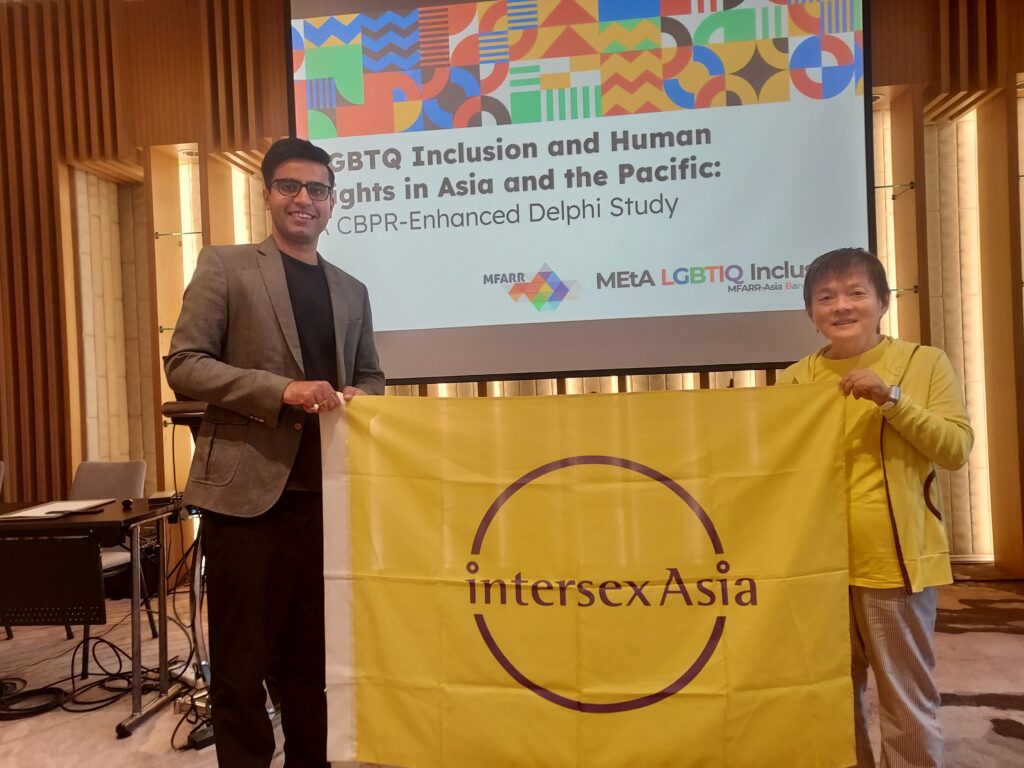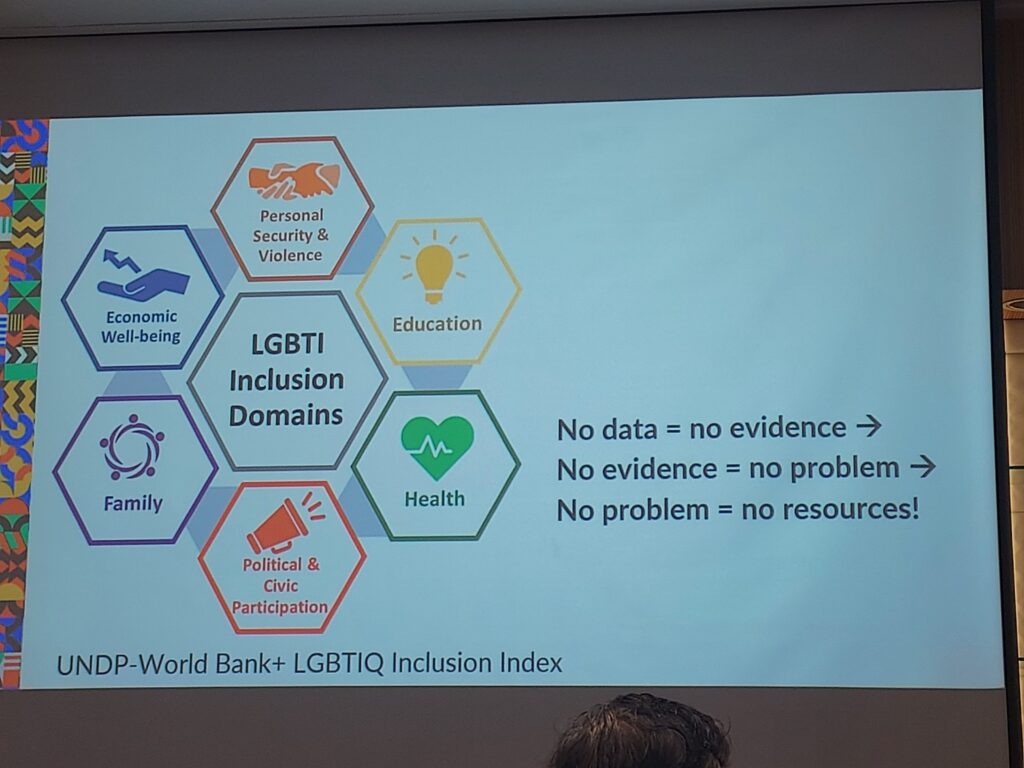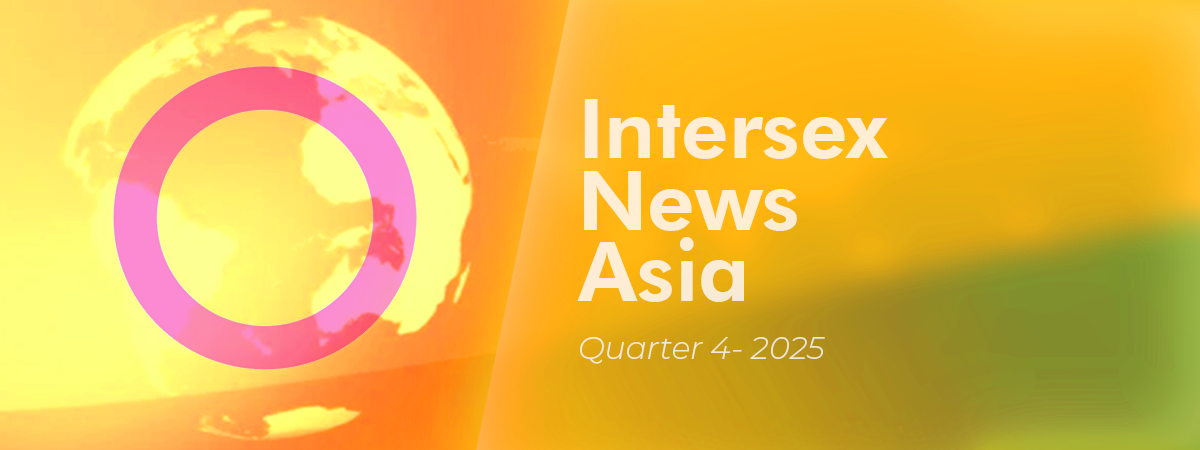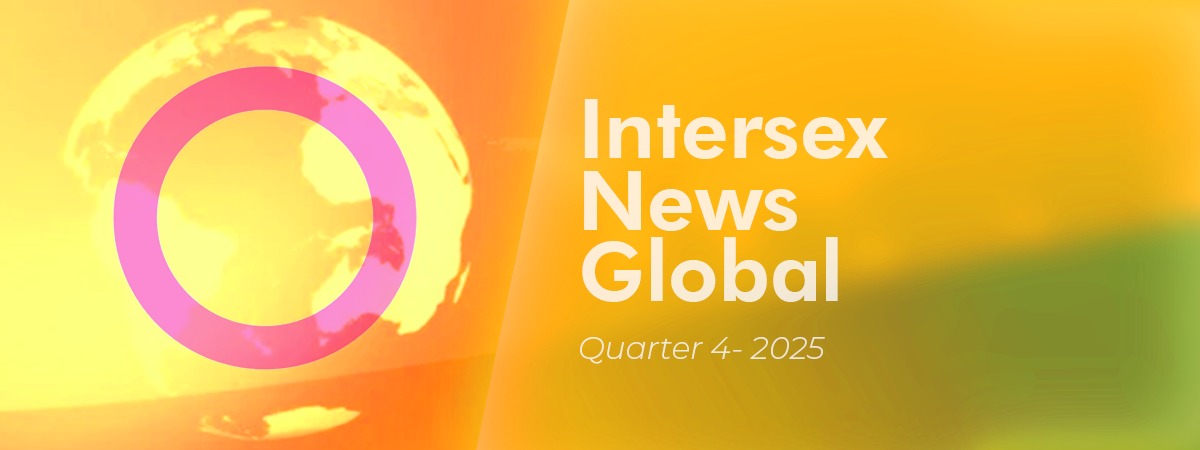The Asian landscape for intersex rights has long been characterized by a glaring scarcity of dedicated research, a reality that often leaves our advocacy efforts without the foundational evidence needed to drive meaningful change. It was against this backdrop that my colleague, Hiker Chiu, the Executive Director of Intersex Asia, and I attended a pivotal gathering that promises to be a turning point for research prospects on intersex issues in addition to the broader umbrella of LGBTI+ issues. On the 24-25 July 2025, we participated in the “Mobilizing Evidence to Advance LGBTIQ Inclusion in Asia” (MEtA LGBTIQ-Asia) meeting, a landmark event held in Bangkok.
Addressing the Data Vacuum
Co-organized by a consortium of esteemed academic and civil society organizations, including the University of Toronto, C-SHARP and The Humsafar Trust from India, and the Social Sciences and Humanities Research Council of Canada, among others, the meeting was a rare convergence of researchers, academics, and activists with a shared focus on evidence-based advocacy. For Intersex Asia, this presented an unprecedented and invaluable opportunity to articulate the critical research gaps that have long affected our work to a diverse and influential audience of research-focused stakeholders.
The significance of this event for the Asian intersex movement cannot be overstated. It was, to our knowledge, the first instance where Intersex Asia has been able to so prominently feature the dearth of research on intersex issues in a forum of this nature. We seized this opportunity to share the comprehensive findings of our country reports, which now span across 12 Asian nations. These reports paint a stark picture of the pervasive human rights challenges that intersex individuals face daily – from medically unnecessary and harmful surgeries in infancy to systemic discrimination in education, employment, and healthcare. We underscore the sobering reality that for many of these violations, there is little to no empirical data available, a vacuum that often allows these harms to persist.
Intersectional for Growth
A highlight of our participation was the session on “Intersex & Transmen’s Rights in Asia,” where Hiker Chiu- IA’s Executive Director, a pioneer in the regional intersex movement, shared the stage with Thanh Hà Chu of “It’s T Time” from Vietnam. Hiker’s presentation not only shed light on the unique struggles of the intersex community but also emphasized the need for an intersectional approach to research and advocacy that recognizes the overlapping and distinct challenges faced by different segments of the LGBTIQ+ spectrum.

Beyond our own presentations, the two-day event was an enriching learning experience. We had the privilege of attending insightful sessions on a wide array of topics, from the fight for trans women’s rights in Thailand, India, and Hong Kong to the progress and challenges of achieving marriage equality in various parts of Asia. Presentations on LGBT+ inclusion in countries like Vietnam, Singapore, India, and the Philippines offered a broader context to our own advocacy, highlighting shared struggles and opportunities for cross-movement solidarity. Learning from the research methodologies and findings of our peers has undoubtedly equipped us with new perspectives and tools to enhance our own work.
Preparing the Future
A crucial aspect of the meeting was its forward-looking and collaborative spirit. We were heartened by the invitation to participate in the MFARR Asia (Mobilizing Fresh Approaches to Research and Practice) project’s ongoing survey. This is a testament to the growing recognition of the importance of including intersex perspectives in broader LGBTIQ+ research initiatives. We are pleased to report that Intersex Asia has already contributed to this vital work by responding to the MFARR-Asia: Delphi study of LGBTIQ inclusion indicators, a comprehensive effort to develop culturally relevant and inclusive metrics for our region.

The discussions on the second day, particularly the breakout sessions on LGBTIQ indicators related to economic well-being, personal security and violence, and political and civic participation, were especially pertinent to our work. These conversations reinforced the need for disaggregated data that specifically captures the experiences of intersex individuals, who often face unique challenges in these areas that are rendered invisible in broader data sets.
As we move forward from this incredibly successful meeting, Intersex Asia is more committed than ever to building on the partnerships we have forged with both civil society organizations and academic research institutions. The connections made in Bangkok will be instrumental in taking our research and advocacy agenda to the next level. We are actively seeking to collaborate with a range of stakeholders to not only continue the vital work of our country reports but also to develop more thematic publications that delve deeper into specific issues affecting the intersex community. Together, we aim to strengthen our collective efforts for the betterment of Intersex Indviduals across the region.
The path to full equality and the realization of human rights for intersex people in Asia is a long one, but events like the MEtA LGBTIQ-Asia meeting fill us with hope and renewed determination. By working together to build a robust body of research, we can ensure that the voices and experiences of intersex individuals are no longer at the margins but are central to the fight for LGBTIQ+ inclusion across our continent.




